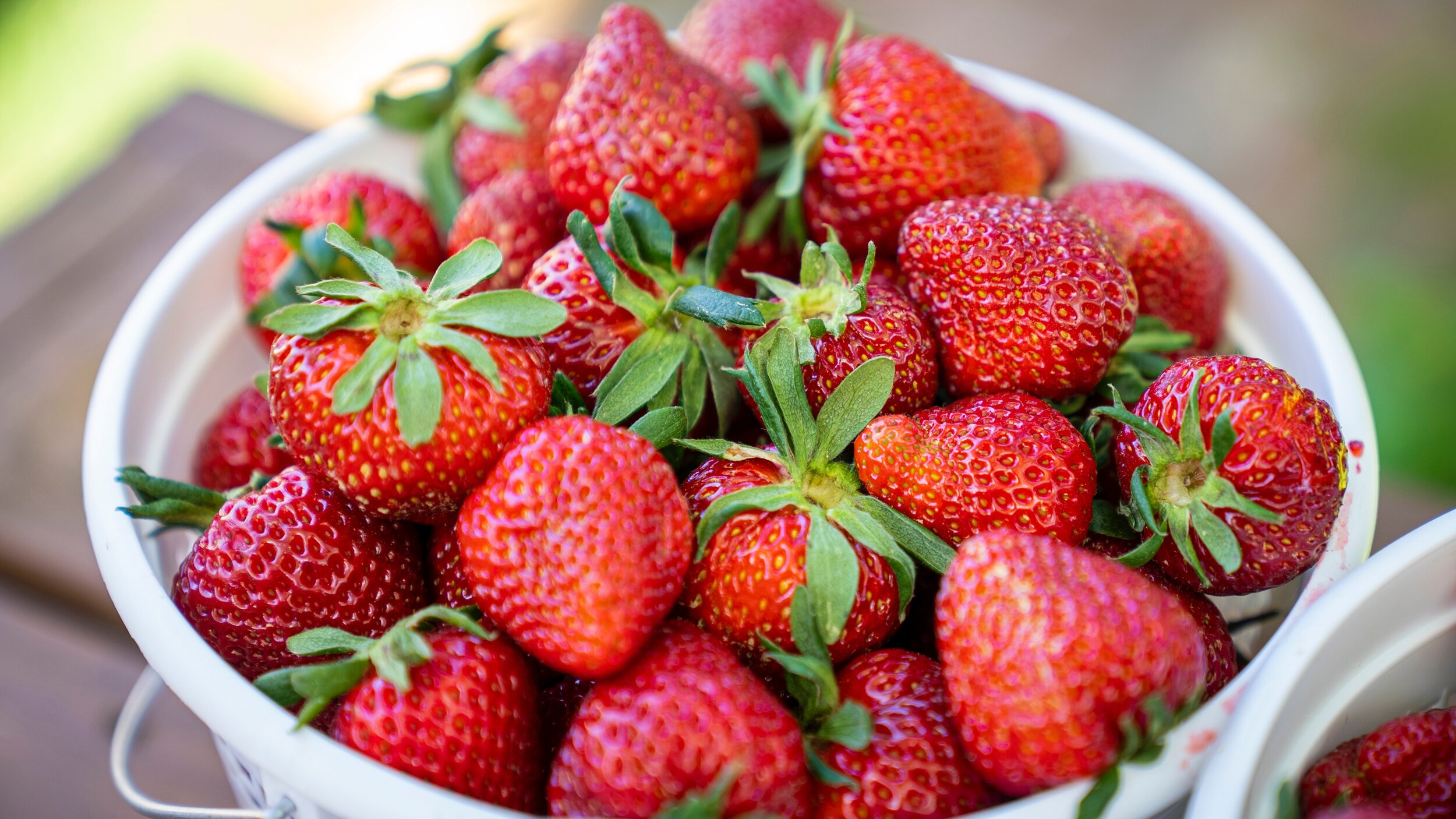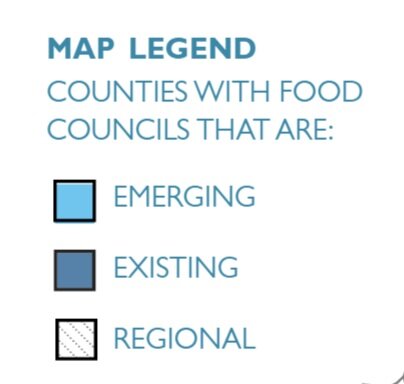
Get Involved

Ways to Get Involved
Get more local food on people’s minds – and on their tables – by joining us today. You can help us by being a champion for local food.
Get Your Shopping Bags Ready
The easiest way to get involved with a Local Food System is to buy and eat local food.
Start a Food Council
Ready to address food and farm challenges in your community head-on?
Build Relationships with Elected Officials
Building relationships with policy makers is important to creating the policy change you want to see.
We provide guidance and technical and informational resources to local food councils and the public, so they can make well-informed decisions about their communities.
Attend an Event
Meetings and workshops geared toward local food councils and their partners are held throughout the year and across the state. These events can help you deepen your commitment to local food and meet other like-minded people in your community. Our partners host workshops on a range of topics, from influencing policymakers to improving racial equity.

Start a Local Food Council
Give Local Food Systems a Voice in Your Community
If you’re interested in starting a food council in your community, first look at this map and see if a food council already exists. If so, get involved!
If you’re here, you have an idea of what a food council is, who is likely to be involved, and the benefits and actions of food councils. 🠞
If not, read through these resources and contact Community Food Strategies for support and consultation.
Community Food Strategies is a dynamic project team that works to expand the capacity of local food councils across North Carolina through consultation, resources, workshops, and networking opportunities.
Based on the Food Council Development toolkit from Community Food Strategies, begin by having multiple conversations with community members or colleagues that have an interest in local food systems or farm-to-table work. The power behind food councils is having the community voice with multiple perspectives gathering information about the current food and farm environment, researching opportunities, and then proposing solutions and improvements. Food councils can provide an avenue for dialogue between their decision-makers and elected officials.
To start a local food council in your community, you need a few things:
People
Gather at least 7-10 people with multiple perspectives/experiences, who will show up for at least three consecutive monthly meetings to discuss this idea.
Consider how this initial group reflects the larger community. Start with as diverse a cross-section of the community as possible.
Place
Select a convenient and inclusive place to meet. Location impacts who will show up. Consider a meeting space that is accessible for parking and public transportation. Consider meeting in different locations, possibly in a rotation, to accommodate members who live in different parts of the town/county.
Faith community buildings and cultural centers are often good choices.
Leaders
Find one or, ideally, two people willing to:
Co-lead the meetings, and
Coordinate meeting logistics.
Also, reach out to neighboring or similar communities that already have a food council to hear about their experiences and receive advice. Consider attending other food council events or regional events to gain a better understanding of the work already being done and gaining traction. If you have questions or would like advice, please contact Community Food Strategies at communityfoodstrategies@gmail.com or (919) 515-5362.

RISE for Local Foods
NCLFC Remote Internship to Support Enterprises for Local Foods
These businesses and organizations are seeking to improve their direct marketing or online presence due to the impacts of COVID-19.
OUR GOAL
Match paid college interns with regional food, farming, or seafood organizations and businesses.
We will pair unique student skill sets (such as social media, marketing, and experience with online platforms) with business needs to help the host businesses improve their profitability and connection to local consumers while supplying impactful experiences and hands-on skill-building related to food systems and supply chains for college students. Students and businesses will stay safe because all work will be done virtually.
This internship is sponsored by:
🠟 About the Program (click for more)
Introduction
The COVID-19 pandemic and resulting lockdowns disrupted food supply chains and demonstrated the fragility of people’s access to healthy foods. The pandemic has changed the way food is grown, distributed, accessed, prepared and eaten across the state. Prior to the coronavirus, fifty percent of meals were consumed at restaurants and institutions. While there is no shortage of food offered at supermarkets, deficits in particular regions and in certain stores have occurred because nearly all meals are being prepared in the home. Consequently, a distribution system constructed to supply food service with bulk items is struggling to adapt to much smaller packaging for home use (Reiley, 2020b). Farms and fisheries of all types and sizes have been impacted. Fisheries have been hit especially hard with seafood sales across the nation decreasing by 95% since March 2020, largely due to restaurant closures.
At the same time, the crisis has offered a glimpse of more resilient food systems, as communities have come together to develop creative responses. We have seen the smaller, local supply chains demonstrate resilience with their ability to quickly adapt and meet the changing needs of communities. However, not all communities and producers have had the time, skills or flexibility to adapt. Many producers across the state continue to struggle to economically survive the pandemic.
As coronavirus infections continue to rise at an alarming rate in North Carolina, many restaurants that had been allowed in May to open at half capacity are now closing again or reverting to takeout only. As a result, the state’s local food and fisheries must seriously explore and devise strategies to sell products directly to the consumers who want it.
Direct marketing is a critical business model to develop among fishers, farmers and small food businesses to compensate for revenues that food service once provided. It may also provide sufficient profits to keep a number of producers, processors and retailers in business when demand from the wholesale sector slows as a result of future economic or public health crises. Competency in direct marketing, however, will necessitate familiarity with technologies not all small producers currently have.
Now, more than ever, the relationships, knowledge and collaborative efforts of NCLFC are needed. Together we have the combined ability to share resources and build a coordinated response to this need. The objective of this proposal is to connect fishers, farmers and food businesses interested in improving their direct marketing or online presence with university interns who can help them develop websites, social media tools and other online platforms to facilitate connections with consumers locally and regionally.
Brief Overview
During the 16 weeks, the intern will have the opportunity to: Assist businesses with expanding their marketing and outreach strategies via internet based platforms including web site design and development, social media, digital graphics, and e-commerce. All work will be done remotely, no on-farm or on-site visitation.
Working Business Hours
TBD based on applicant's schedule and organizational needs
Internship Duration and Work Environment
- All interns have an anticipated start date of October 1, 2020
- All Internships will last approximately 16 weeks (not including holiday weeks) for 10-15 hrs a week
- All internships will have a 100% remote working environment
Up To 10 Available Remote Summer Internship Opportunities
Some organizations may take more than one intern
🠟 References
Reiley, L. Commercial fishing industry in free fall as restaurants close, consumers hunker down and vessels tie up. April 8, 2020a. Washington Post. Available at: https://www.washingtonpost.com/business/2020/04/08/commercial-fishing-coronavirus/
Reiley, L. The Industry Says We Have Enough Food. Here’s Why Some Store Shelves Are Empty Anyway. April 14, 2020b. Washington Post. Available at: https://www.washingtonpost.com/business/2020/04/14/grocery-stores-empty-shelves-shortage/

Become a Regional Representative
Regional reps have been selected for 2021.
Western and Southeastern positions will be open in 2022!
Are you involved with your local or regional food council and want to make a bigger impact?
Apply to become a regional representative!
Position Description
As a regional representative, your responsibilities include:
Committing to a 2-year membership as a regional liaison to local food councils
Attending monthly NCLFC meetings as often as possible
Sharing perspectives and updates from local food councils in your region (you will be encouraged to participate in regional networking calls for food councils in your region 2-3 times each year in order to have a broad perspective of local councils’ work regionally)
Participating in at least one NCLFC committee (more details on committees will be shared during orientation)
Benefits of Becoming a Regional Representative
Local council representatives will:
Connect to a network of fellow food council members strategizing around critical food system issues across the state
Bring their local experience to the state level
$700/ year stipend, as well as reimbursements for mileage to attend meetings and NCLFC-related strategic connection opportunities

Attend an Event
Public events across North Carolina are highlighting the work people are doing to build local food systems in their communities. Attend and get involved with other local food enthusiasts.
The Local Food Portal managed by Cooperative Extension is intended to be a comprehensive list of local food events across the state.
These are some organizations that host events that will provide connections to information and resources to those who want to establish or to expand local food systems in their communities:
Does your organization host events that highlight local food? Share information about your program with us and we will be happy to post it.

Buy Local Foods
-

Shrimp
Support shirmp fishermen this summer season!
-

Strawberries
Pick your own or find them at your local farmers market.
-

Shellfish
Serve up North Carolina shellfish for your next meal!










